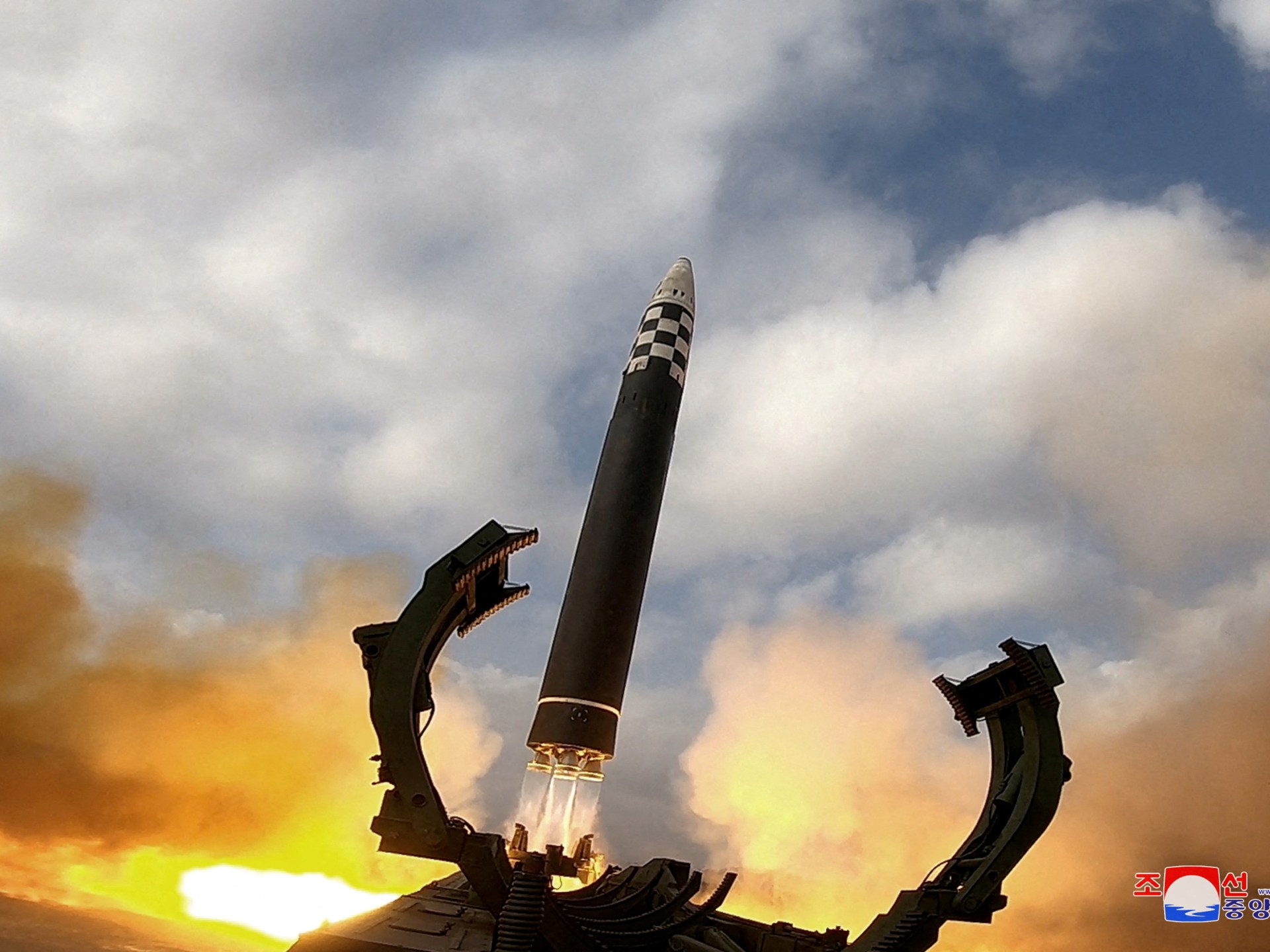On Friday, the US and Japanese forces conducted joint military exercises in the airspace over the Sea of Japan, and US and South Korean fighters flew off the eastern coast of the Korean Peninsula, after Pyongyang launched an intercontinental ballistic missile that could hit the US mainland.
In this regard, Reuters said that the UN Security Council will hold a meeting on Monday to discuss the North Korean file, after Pyongyang conducted a new test of an intercontinental ballistic missile on Friday.
On the other hand, North Korean leader Kim Jong-un threatened that he would use nuclear weapons to respond to threats, according to Agence France-Presse.
Meanwhile, UN Secretary-General Antonio Guterres said that North Korea should "immediately refrain" from any new "provocation" after the missile launch, which fell into the sea off Japan.
He added - through his spokesman - that North Korea should "resume dialogue" as a prelude to "complete denuclearization" of the peninsula.
Japanese officials said that the North Korean missile landed only 200 kilometers from Japan, noting that it has the ability to reach the mainland in the United States.
In response to the new North Korean experience, the United States pledged to ensure its security and the security of its allies, while Russia called for avoiding confrontation on the Korean Peninsula.
The Chinese Foreign Ministry also announced that Beijing is closely following developments on the Korean Peninsula, expressing its hope that the parties will seek a political settlement that addresses each party's concerns in a balanced manner through dialogue.
She said that preventing escalation on the Korean Peninsula is in the interest of the entire international community.
The White House condemned the North Korean missile launch and said the United States would take all necessary measures to ensure its security and the security of its allies in Japan and South Korea.
US Vice President Kamala Harris also held an emergency meeting in the Cambodian capital with the leaders of Japan, South Korea, Australia, Canada and New Zealand, on the sidelines of the Asia-Pacific Economic Cooperation (APEC) summit, to discuss North Korea's long-range missile launch.
Harris called on Pyongyang to stop what she described as provocations, stressing Washington's commitment to allies in the region.
Canadian Prime Minister Justin Trudeau announced that his country would stand by its allies in the region to ensure that North Korea stopped its "provocative operations", and a similar position was issued by New Zealand Prime Minister Jacinda Ardern, who accused Pyongyang of threatening the security of the region.
Contrasting position
In a different position, the Russian Foreign Ministry said that the United States is "testing North Korea's patience."
Shortly before that, the Russian Deputy Foreign Minister said that his country is concerned about the situation on the Korean Peninsula and calls on the parties concerned to avoid confrontation.
The Japanese Prime Minister Fumio Kishida has described the launch as "absolutely unacceptable," noting that there were no reports of damage to any ships or aircraft caused by the missile in the Sea of Japan.
He added that "Japan, the United States and South Korea must closely coordinate work on the complete denuclearization of North Korea."
The South Korean Ministry of Defense announced that North Korea launched what appeared to be an intercontinental ballistic missile, a day after it launched a smaller missile.
On November 3, North Korea launched an intercontinental ballistic missile, but this launch apparently failed, according to Seoul and Tokyo.
Last March, Pyongyang violated the 2017 self-imposed moratorium on launching this type of long-range missile.
Pyongyang has conducted a record number of missile tests this year, and has launched more than 50 short-range and long-range missiles since September 25.

